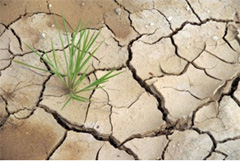Less is more - as the world seeks to find solutions to global warming and rapidly depleting water levels, Dow Corning develops rubber silicone technology to help control water efficiency on plantations by at least 40%.

Water conservation is an area where innovation is needed to address a growing global problem. The next generation silicone rubber product range for the drip irrigation market has recently been commercialized and it believe it will help drive the growth of more water efficient pressure compensated drip irrigation systems.
The silicone rubber which is used in the technology enables water to drip at a constant rate through its membrane so that water is not wasted. The properties of the silicone rubber such as long term stability and resistance to high temperatures makes the technology ideal for warmer climates, enabling plants to grow more with less water.
Justin Jorgensen, Global Marketing Manager for Rubber said, ‘water is a precious resource and it’s imperative that we conserve it where we can. It’s critical to our future and we cannot afford to throw it away. Where silicones can help, we will be there provide more sustainable solutions - from reducing water wasted in the fields to protecting pipes from leaking in the home.’
‘The rising number of homes, more frequent bathing and thirsty home appliances means that the average person is consuming 150 liters of water a day. It’s a pattern that cannot continue,’ says Marco Pagliani, Sales Development Manager, ‘Drier months and inefficient technology can be beaten, we just have to adapt – even the desert could bloom if we get it right.’
Examples from across the globe, where water savings are being made through the help of Dow Corning silicones:
India – Oil palm plantations have benefited from controlled drip irrigation systems by saving up to 32% water. The amount of water saved could irrigate a further 0.48ha.
China –22% of global potato production is based in China, with over 2000 farms in the Hebei province. Silicone rubber technology has helped to achieve 40% reduction in water usage at one such farm which subsequently with the saving could irrigate a further 0.65ha.
Philippines – Sugar cane farmers in the Philippines are using controlled drip irrigation systems to be more sustainable in their undulating terrains. Drip feed technology has reduced water consumption by up to 70%.
Posted April 1st. 2009